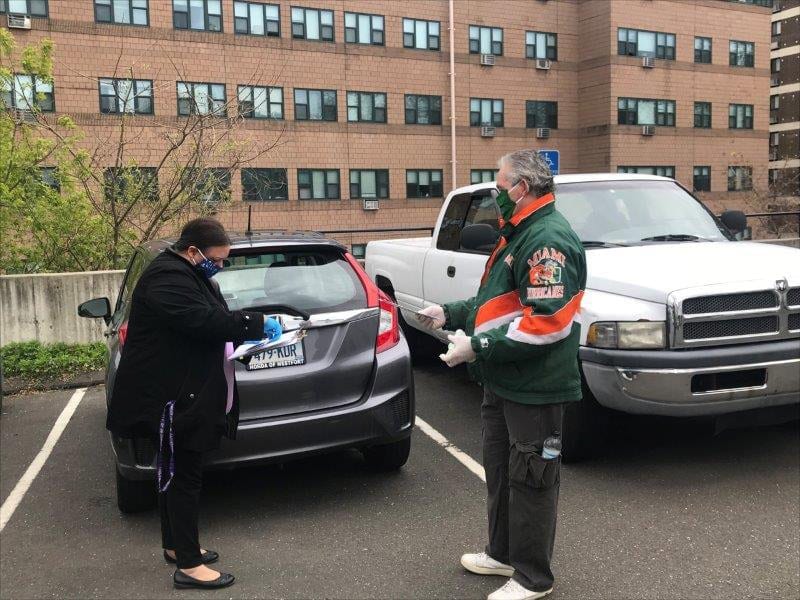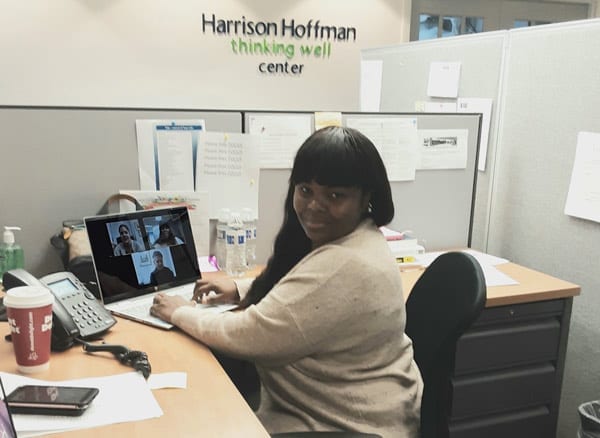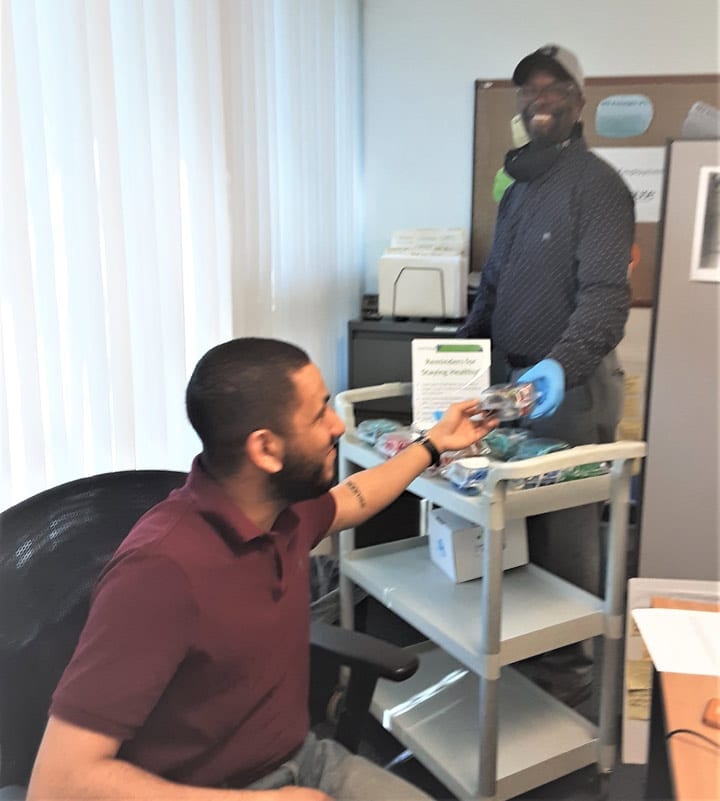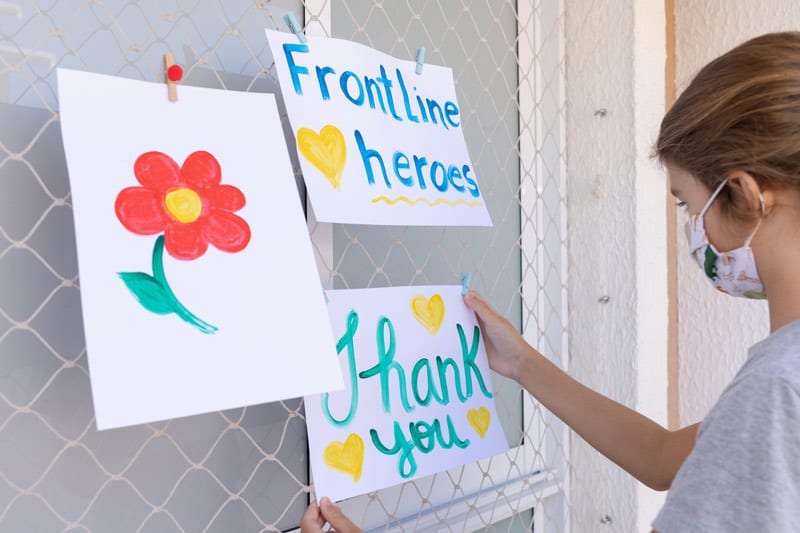May is Mental Health Health Awareness Month, a time to reflect on the impact of mental health disorders on individuals and their families every day of the year.
For people living with mental illness, the coronavirus pandemic is one more challenge among many they face each day. The World Health Organization (WHO) reports that having a severe mental health disorder reduces life expectancy by 10-25 years. The vast majority of these deaths are due to chronic physical medical conditions such as “cardiovascular, respiratory and infectious diseases, diabetes, and hypertension,” followed by suicide and lifestyle and risk behaviors.
These conditions have caused people with serious mental health conditions to die much earlier than they should. A complex system of mental health treatment, support, and rehabilitation services struggles to combat this trend even under the best of circumstances. The novel coronavirus pandemic has strained that system to its limits.
During this global health crisis, the counselors and caregivers to the most vulnerable among us are the heroes of our time.
Last year Laurel House, Inc. in Stamford, Connecticut, [1] provided supportive rehabilitation services to 860 individuals with mental health disorders in its Supportive Housing, Supported Education, Supported Employment, and Social Rehabilitation Programs. In ordinary times, these programs provide participants with vital links to the community, through jobs and opportunities to go to college, as well as an array of supportive services to ensure that they are safely housed, fed, and receiving the medical and psychosocial care to sustain them in the community.
As I write these words, Fairfield County, where Laurel House operates, has the highest COVID mortality rate in the nation. Many of our clients and staff and their families have been affected. Here in Fairfield County, it is hard not to know someone who has died or lost a loved one to the pandemic.
Despite these trying circumstances, our clients continue to rely on support from our employees to keep them going – now more than ever before. Social isolation is a major problem for people with mental health disorders. While the rest of us are social distancing, people with mental illness may find themselves alone without the resources to cope with the worst health crisis of our time.
In the last six weeks of the pandemic, Laurel House counselors and direct support staff have served nearly 300 individuals with mental health conditions living in the community, many of them cut off from their usual support systems and routines. This support includes face-to-face contact with many clients in the places where they live and the provision of COVID-related support, information, and preventive measures.
Laurel House staff are not superhuman caregivers. They are ordinary people with families, frailties, and concerns about COVID-19, just like everybody else. That’s what makes them heroes now. They show up for work and do the job because their clients need them.

Marian Caldera is a Community Peer Support Counselor in our housing program. During the pandemic, she has worked from home three days a week, doing remote outreach to clients by phone, text, and email. The other two days, she is at our program site and in the community providing direct services to residents in our Supportive Housing Program, ensuring they are well and have access to food and medication, and are taking precautions to avoid infection.
She is also working to make sure that clients receive all benefits they are entitled to, continue to have a stream of income, and can pay their rent and other bills.
Marian is open about her own challenges of living with an anxiety disorder. At the start of the pandemic, she took a leave of absence to tend to her mental health, and to protect her mother’s health. In doing so, she gave a living example to one of the most important principles of the caregiving professions: take care of your own wellbeing first so you can take care of others!
Less than a month later, Marian was back on the job, helping others deal with their anxieties about COVID-19 and all the other challenges they face in life. For many residents in the Supportive Housing Program, Marian is now their primary link to the outside world. Having a concerned, compassionate person to talk with regularly is for some clients, the most crucial support of all.
Marian’s struggles in the early stages of the pandemic helped her reach a better understanding of her role as a Peer Support Counselor. “For years, I dedicated myself to my own recovery. Now I understand the reason why is so I can help other people through a difficult time like this. My own recovery has paid off, and I’m proud to be able to function as an essential worker.”
Keri Walker works as a full-time Supported Employment Specialist at Laurel House, while studying for her Master’s Degree in Social Work at Sacred Heart University. As a veteran of the United States Military with deployments in Iraq and Afghanistan, she is no stranger to self-sacrifice for the public good.

Keri’s role as an Employment Specialist is part of the recovery orientation of Laurel House services. While residents in the Supportive Housing Program tend to have a higher level of need, many other clients live independently in the community, pursuing goals related to employment and education. This emphasis on employment, education, and skills-training is part of the strong recovery orientation and community integration focus of the programs at Laurel House.
For some participants, the coronavirus pandemic has been a setback to their employment goals, while for others, it has been an opportunity. Whether working from home or at our service site, Keri continues to help both kinds of clients. For those struggling to file uninsurance claims, she helps guide them through this arduous process, while working with others to apply for new positions opened up by the sudden need for workers in essential retail services and online fulfillment warehouses.
When Keri is not helping clients one-on-one with their employment goals, she is busy providing workshops and skills-training sessions for groups of participants on the online platform Zoom. She has been so successful in helping clients apply for and receive unemployment benefits that she recently conducted an online in-service training for other staff on how to navigate the system.

As Laurel House’s Vice President of Operations, John Wooten has been busier than ever, supplying staff and participants with scarce personal protective equipment (PPE), while making sure that residences and program sites are safe places to live and work.
John is also a veteran of the United States Military, as well as Laurel House, with more than 16 years of service to the organization. At its meeting in April, the Board of Directors approved John’s promotion to Vice President with a resolution commending him for his hard work and dedication over the years and his leadership during the pandemic.
John does not know the meaning of “stay at home.” Throughout this period, he has been on-site in our service locations and residents’ apartments not just from nine to five, Monday through Friday, but on weekends and evenings as the need arises.
This dedication and 24/7 availability is the standard operating mode for John, not just for pandemics and other challenges. He has always been there for participants, staff, and the organization, but now we feel it more than ever.
When social distancing rules were introduced in March, and PPE was getting hard to source, John came through our Resource Center with a cartful of personal hand-sanitizers and antiseptic wipes for all our staff, and more for clients. Since then, he and his team have been through our clients’ apartments and programs sites several times a day to keep them safe for all of us.
Marian, Keri, and John have always possessed the qualities of dedication, service, and personal strength that go into the making of a hero. It just takes a situation like the one we’re in for the rest of the world to notice and applaud.
During this time of a national health crisis, it is heartwarming to see the essential workers in our economy getting the recognition they deserve with public drive-by salutes, flyovers by the Blue Angels, and songs like Alicia Key’s ‘Good Job.’ But it takes more than applause to keep them going.
And it takes more than heroism and devotion to the cause to run Laurel House and keep its clients safe and healthy. It takes resources to acquire PPE, manage the transition to remote services, and pay the salaries for people like Marian, Keri, and John so they can continue to work as the heroes they are.
We know that you admire the work they are doing. We ask that you support it as well.
[1] Laurel House, Inc. is a 501 (c)(3) nonprofit organization, which provides www.rtor.org, as well as support and rehabilitation services for adults living with mental illness in Stamford, CT, and other communities of Fairfield County.
Recommended for You
- Silver Hill Hospital: My Family’s 35-Year History with a National Leader in Quality Mental Health Care - February 7, 2023
- Connecticut Mother Who Lost a Son to Overdose Shares Her Story and Hosts Wilton Fundraiser to Benefit Laurel House - November 9, 2022
- Laurel House Offers $10,000 Racial Equity Scholarship for a Black or Hispanic Student Pursuing a Master’s of Social Work Degree - June 8, 2022






Hi Jay, This post was truly worthwhile to read. I wanted to say thank you for the key points you have pointed out as they are enlightening. Please see my blog, Pandemic Caregiving for Elder Family Members Hope this will also help. Thank you!